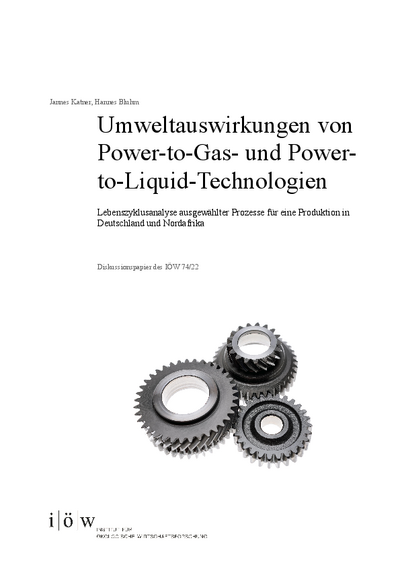Environmental impact of Power-to-Gas and Power-to-Liquid technologies Life cycle assessments of selected processes for a production in Germany and North Africa
Power-to-X technologies for the production of gaseous and liquid fuels play a key role in the transformation of the energy system. At the same time, the question arises as to whether the energy intensive processes can generate the intended environmental benefits.
The Institute for Ecological Economy Research has examined four technologies in more detail with the help of life cycle assessment: proton exchange membrane electrolysis and chemical methanation as Power-to-Gas processes, as well as Fischer-Tropsch synthesis and direct ammonia synthesis as Power-to-Liquid processes. For the year 2030, the entire production chain is analysed with regard to greenhouse gas emissions and other impact categories.
Results show that with the four processes significant environmental advantages can be achieved compared to fossil reference products if wind power is used as electricity source. Using the average electricity mix, on the other hand, results in net environmental burdens. Alternative electricity supply scenarios with wind offshore plants or a North African mix of electricity from wind and photovoltaic plants show that emission reductions can be even higher.
As a conclusion, three conditions can be derived for an ecologically advantageous operation. First, renewable energies must be used consistently as the source of electricity, which need to be expanded accordingly for this purpose. Second, no sources should be used for CO2 supply that disproportionately burden the remaining emissions budget or hinder the use of alternative, climate-neutral processes in the industry sector. Third, the use of the four processes only makes sense if no ecologically more advantageous technology alternative is available for the targeted application.



